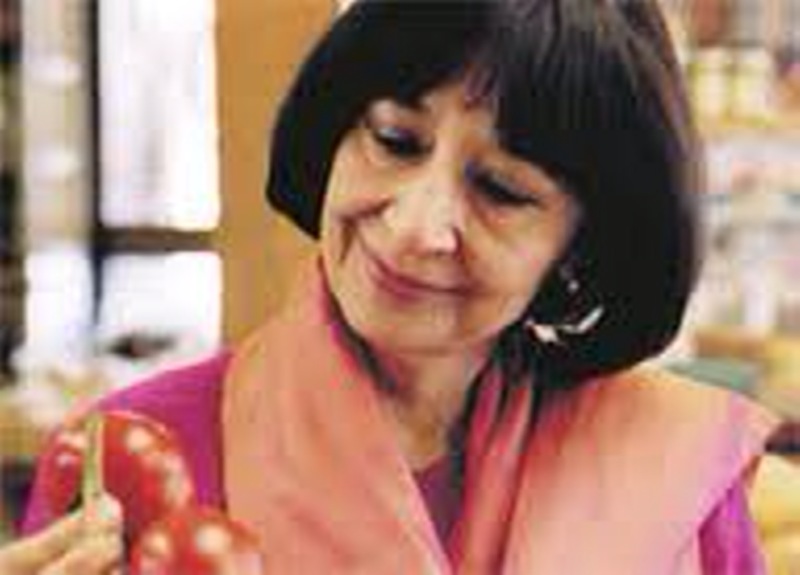Downton Abbey Reflects Our Own Changing Times
 Wednesday, January 26, 2011 at 3:45PM
Wednesday, January 26, 2011 at 3:45PM Culinary fans of historic tales have been fascinated by BBC’s new series entitled Downton Abbey. Set in 1912 just two years before the European start of World War I, King George V in on the throne and the tides of social change are lapping at the shores of England. With the clouds of war gathering on the Continent, more then just a new century has begun. And everyone will be effected whether they like it or not.
 The fictitious Crawley Family owns (at least for awhile) the ancestral Downton Abbey nestled in the beautiful rolling green English countryside. But try as they might to avoid them, the waves of change are steadily breaking on the steps of their once peaceful country home. New and strange inventions such as electric lights, motorcars and ringing telephones are all making their jarring presence felt in the grand house.
The fictitious Crawley Family owns (at least for awhile) the ancestral Downton Abbey nestled in the beautiful rolling green English countryside. But try as they might to avoid them, the waves of change are steadily breaking on the steps of their once peaceful country home. New and strange inventions such as electric lights, motorcars and ringing telephones are all making their jarring presence felt in the grand house.
But the changes that move Julian Fellowes’ outstanding script forward aren’t just about wires and wheels. Society itself is changing much to the displeasure of the elder Dowager Countess of Grantham, brilliantly played by Maggie Smith.
No one seems to know their place. A lowly housemaid wants to be a modern secretary while one of the pampered Crawley daughters longs to be a feminist, attend suffrage rallies and wear Poiret’s new harem pants to dinner. Shocking, simply shocking! How will one get a husband (and provider) with such unladylike behavior!
 From the county flower show to a love affair with a foreigner, nothing is as it was when good Queen Victoria sat firmly on a more moral throne. As a result, the thoughtful Lord Grantham struggles with the fading value of traditions while Mathew Crawley, a distant younger cousin set to inherit the entire estate, struggles with an undiscovered sense of self and purpose.
From the county flower show to a love affair with a foreigner, nothing is as it was when good Queen Victoria sat firmly on a more moral throne. As a result, the thoughtful Lord Grantham struggles with the fading value of traditions while Mathew Crawley, a distant younger cousin set to inherit the entire estate, struggles with an undiscovered sense of self and purpose.
In short, Downton Abbey is the story of a society on the edge of all that’s modern. But this isn’t the first series presented by BBC that explores this still contemporary issue of racing rapid change.
In 1977 the equally amazing story of Rose Lewis was presented by BBC in The Duchess of Duke Street series. This story is about a real life individual who rode the same rising waves of change that are now being portrayed in the popular Downton Abbey programs.
 Known to her contemporaries as the “Queen of Cooks” she trained under the great "King of Chefs" Auguste Escoffier and went on to own and direct the legendary Cavendish Hotel in London. Independent and with a sense of humor that broke through Edwardian class barriers, she cooked for Kings and Emperors, all the while keeping their secrets and winning their respect.
Known to her contemporaries as the “Queen of Cooks” she trained under the great "King of Chefs" Auguste Escoffier and went on to own and direct the legendary Cavendish Hotel in London. Independent and with a sense of humor that broke through Edwardian class barriers, she cooked for Kings and Emperors, all the while keeping their secrets and winning their respect.
She loved and deeply understood people. She believed that life should always be a feast no matter the circumstance. When a heavy bomb fell on the Cavendish Hotel during World War II, an aged Rose emerged from the ruins to the amazement of everyone, dusted the broken glass from her hair, and shook her fist at the departed Nazi bombers. Then she served champagne to all those crowded into the now rubble filled street! Now that's style!
If you are enjoying Downton Abbey, be sure to check out The Duchess of Duke Street programs. You’ll adore Rose’s fighting spirit, fine cooking and courage as she and the cast of real characters around her learned how to be modern in a faster world while still maintaining their love of life.
Your Culinary World copyright Ana Kinkaid/Peter Schlagel 2011
























































































































































































